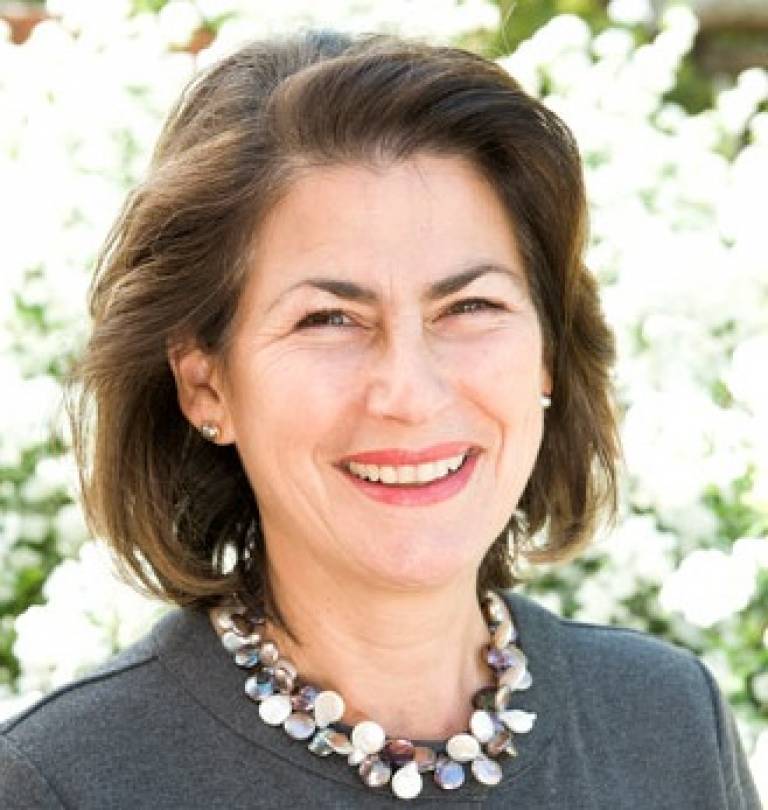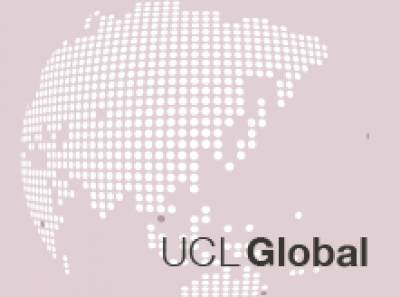Vice-Provost's View: Launch of our new Global Engagement Strategy
21 May 2015
I'm delighted - and not a little relieved - to announce that Council approved the new GES on 13 April, after a full discussion on 30 March.
 The new strategy can be summarised as 'London's Global University works with partners to achieve fair solutions to global challenges'.
The new strategy can be summarised as 'London's Global University works with partners to achieve fair solutions to global challenges'.With great support from the Communications & Marketing office and others across UCL, we are launching with staff and students today:
• A downloadable and printable PDF version of the final strategy
• A professionally printed 'one pager' of the cover sheet plus the executive summary
• A website version
• An interactive world map showing highlights of UCL collaboration with individual countries.
We'll be sharing it with external stakeholders tomorrow.
Please do take a look at some or all of these ways to communicate the GES - it should feel quite familiar now, after the 70+ consultation events over the past couple of terms. You can use them in your role as advocates and ambassadors for UCL when you are out and about.
Sharing the GES
I hope you will all have at least one colleague around the world with whom you'd like to share the 'one pager'. Michael Arthur and I have so far tested it on the US Ambassador and the CEO of Santander. They liked the fact that it's:
• visibly aligned with our 20-year UCL 2034 strategy
• values-driven - with "fair" at the core - and student-centred
• based on partnership
• ambitious, grounded in London, but with global reach
• short, with an executive summary less than a page long, itself summarised in 13 words
• contains a clear list of priority actions and measures.
The table on page seven of the PDF shows what we're going to be doing first to implement it.

Configuring our teams to deliver the GES
Before we can get down to delivering the new GES, we have a few important practical things to do: getting our internal 'configuration' of teams in the best shape to collaborate; and setting clear decision pathways and governance arrangements for our four types of global partners.
These are: Fundamental (individual academic collaborations); Faculty (-wide engagement with a particular partner); Institutional, involving more than one faculty or school; and Anchor - we're aiming, over time, for between five and eight partnerships with universities, research institutes, government agencies, charities or corporations around the world whose culture, values, objectives and desire to co-create fair and sustainable benefits for society match ours.
The third practical thing we need to know is, what's the budget for this? We hope to have that next month. We all know the challenges of getting UCL onto a financially sustainable footing, where we are making sufficient surplus to invest in our future.
Our global activity will have to operate within a tight envelope just like our other ambitions. Luckily, we have lots of creative people at UCL who can make small sums go a long way!
Look out later this year for more news about opportunities to bid for small amounts of match funding to support Fundamental and Faculty global partnerships - from the 'Sea' (of academic freedom and creativity) Fund and the 'Currents' Fund. This is just one of the ways that we can multiply our global impact - and the distance our global story will travel.
Dame Nicola Brewer (Vice-Provost International)
 Close
Close

